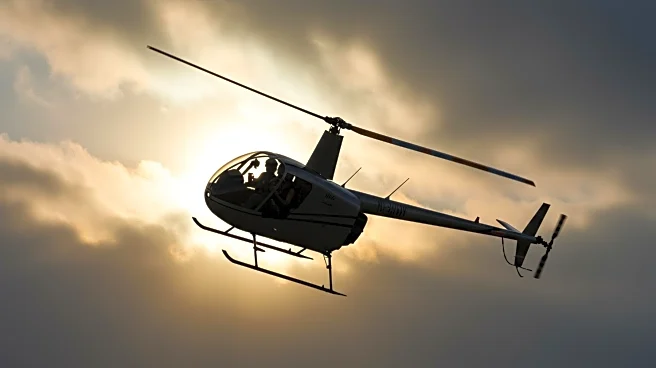What's Happening?
Airbus is contesting claims that its UH-72A Lakota helicopter is unsuitable for the US Army's pilot training program. Critics, including senior army leaders, argue that the helicopter's complexity and automation hinder basic flight skill development, linking it to an increase in rotary-wing accidents since its adoption in 2020. Airbus counters these claims, highlighting the helicopter's adjustable automation levels, which can be modified at no cost to suit training needs. The company emphasizes the Lakota's safety record and its use in other countries for pilot training. The debate is part of the broader competition for the army's Flight School Next contract, valued at $1.5 billion annually, which aims to overhaul the army's flight training curriculum.
Why It's Important?
The controversy surrounding the UH-72A Lakota's suitability for pilot training has significant implications for the US Army's training program and the broader defense industry. The outcome of this debate could influence the future of military pilot training, potentially leading to changes in aircraft procurement and training methodologies. Airbus's defense of the Lakota highlights the competitive nature of military contracts, with major industry players vying for lucrative deals. The decision could impact the army's operational readiness and safety, as well as the financial interests of companies involved in the Flight School Next program.
What's Next?
The US Army is considering alternatives to the UH-72A Lakota for its Flight School Next program, with competitors like Bell, Leonardo, and Lockheed Martin proposing different solutions. The army's decision will likely focus on balancing cost, training effectiveness, and safety. As the debate continues, stakeholders in the defense industry are closely monitoring developments, anticipating potential shifts in military training practices and procurement strategies.
Beyond the Headlines
The discussion around the UH-72A Lakota raises broader questions about the role of automation in pilot training and the balance between technological advancement and traditional skill development. The army's emphasis on 'stick-and-rudder' skills reflects a desire to ensure pilots are prepared for real-world scenarios, despite the increasing complexity of modern aircraft. This debate may influence future training programs across military branches, as well as civilian aviation training.









